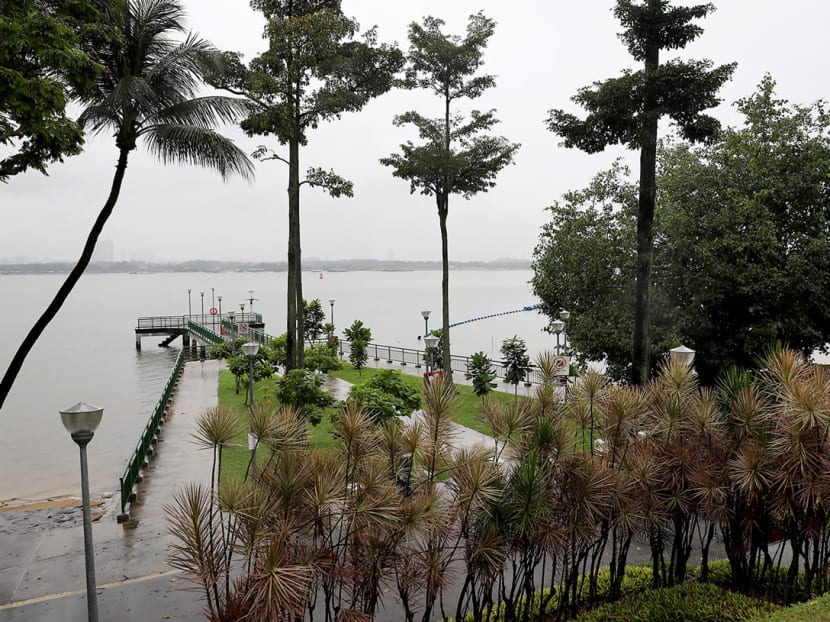Public advised not to swim at Pasir Ris, Sembawang beaches due to elevated bacteria levels detected: NEA
SINGAPORE — Members of the public are advised not to swim at Pasir Ris beach and Sembawang Park beach because elevated levels of enterococcus bacteria have been detected in the waters there.

A view of the beach at Sembawang Park.

This audio is AI-generated.
- The levels of bacteria detected at the beaches in Pasir Ris and Sembawang Park are higher than average
- The National Environment Agency said that this increases the risk of gastrointestinal infection when the water is ingested
- It is thus advising the public not to swim in the waters or engage in activities such as wakeboarding or windsurfing there
- The two beaches had been downgraded to "fair" from "good" in the agency's annual grading exercise
SINGAPORE — Members of the public are advised not to swim at Pasir Ris beach and Sembawang Park beach because elevated levels of enterococcus bacteria have been detected in the waters there.
In a media release on Monday (Feb 5), the National Environment Agency (NEA) said that waters at both beaches have been graded "fair" in the annual beach-grading exercise, dropping from "good" in the previous year.
This drop in grade is "due to increased occurrences of elevated enterococcus bacteria in the beach water, which increases the risk of gastrointestinal infection when the water is ingested," it added.
Enterococcus is commonly found in the gastrointestinal tracts of warm-blooded animals, including humans. Data suggests correlations between enterococcus levels in recreational water and gastrointestinal illness risk in swimmers.
In response to TODAY's queries, an NEA spokesperson said that there is no known link between the fish deaths found along Sembawang Beach in January this year and the deterioration of water quality at the same beach.
The public is advised against swimming at both beaches and engaging in other "primary contact water activities" such as wakeboarding and windsurfing until further notice.
Other activities such as sailing, kayaking and canoeing can continue, NEA said.
Based on the agency's preliminary investigations, the elevated enterococcus levels are from inland sources and are "not transboundary in nature", that is, not from outside Singapore.
The last time a beach advisory was issued was from August 2008 to January 2012 for Pasir Ris beach, where the "fair" grading was attributed to various possible sources.
This included leakage from older sewers and discharge from moored vessels and animals.
NEA conducts regular water sampling at seven popular recreational beaches in Singapore, which are graded based on the World Health Organization's recreational water quality guidelines.
All recreational beaches were graded "good" in 2023, which meant that the waters were suitable for all activities.
NEA said that signs advising the public against swimming will be put up along the beaches of Pasir Ris and Sembawang Park and will be in place until further notice.
Beaches at East Coast, Changi, Punggol, Seletar Island and Sentosa Island all maintained a "good" grade and are suitable for all water activities, the agency said.
However, as there may be occasions when the enterococcus count in the beach water is elevated, beachgoers are encouraged to refer to information on short-term water quality for beaches on NEA's website or the myENV mobile application if they intend to engage in water activities.
"NEA is working with other agencies such as PUB, the National Parks Board and the Singapore Food Agency to investigate and mitigate possible sources contributing to the elevated enterococcus bacteria," the agency said.










